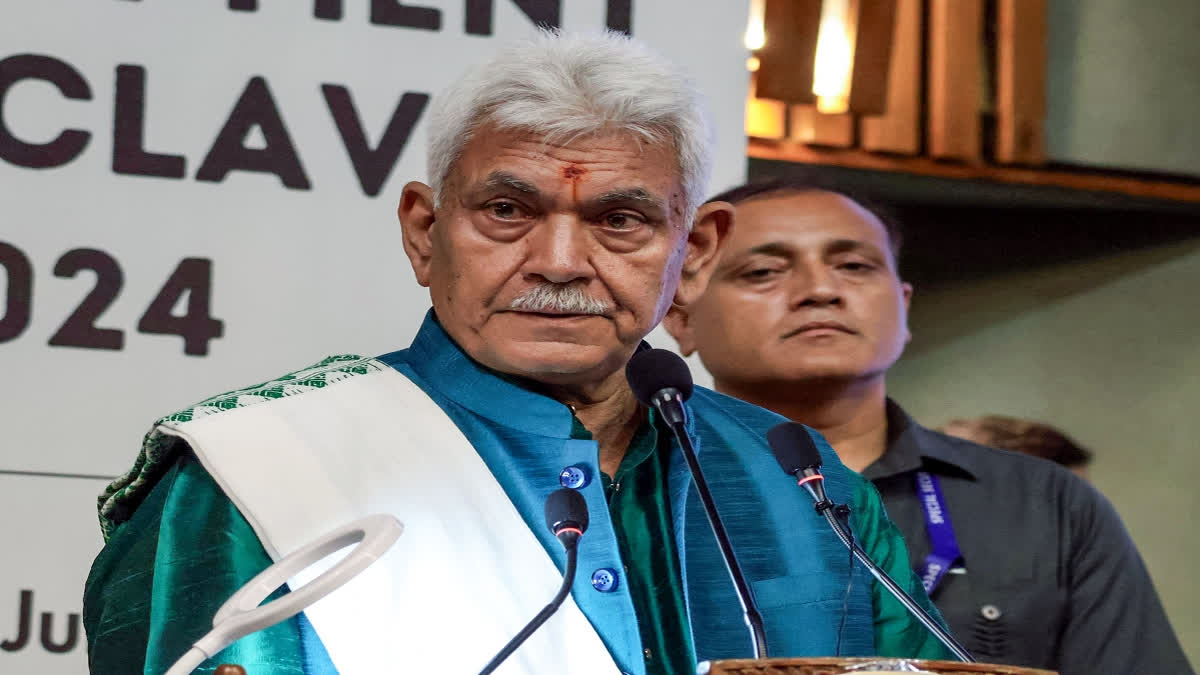Srinagar:Development in Jammu and Kashmir will get a major blow this year as the LG administration has deducted development funds from the District Development Councils to clear previous liabilities and poor utilisation of last year's allocated funds.
The deduction has annoyed the DDC members, who are up in arms against the administration as they fear public backlash for they will not be able to carry out development in their areas. The DDCs argue that for the poor utilisation of funds last year by the administration and clearing liabilities, the government is making them scapegoats to face public wrath.
Formed in 2021, the district development councils in the UT are at the forefront in making work plans for the development in rural areas. The 20 districts of the UT have 20 councils with each district having 14 elected members. Each DDC member is allocated Rs 71.25 lakh funds for development in their segments.
In February this year, the Union Finance Minister Nirmala Sitharaman presented an interim Budget of Rs 59, 364 crore for Jammu and Kashmir UT, which was necessitated by the Lok Sabha elections in May. In this budget, capital expenditure was capped at Rs 19,283 crore. Of this Rs 272 crore were kept for District Development Councils (DDCs) and Block Development Councils (BDCs) for improving local governance at district and block levels.
As per the budget document of the Finance department, Rs 10 crore each was to be kept for 20 DDCs with each DDC member to get Rs 71.25 lakh while Rs. 25 lakh each for 285 (Block Development Chairman) was kept as development funds. In the absence of BDCs, the funds are to be utilised by the Block development officers.
The DDCs say that out of the Rs 272 crore, the government has deducted their funds for clearing previous liabilities. In April this year, Santosh D Vadiya, principal secretary to the Finance department directed all the departments to settle the unpaid bills (of contracting and supplying agencies) of the 2022-2034 financial year in the current (2024-2025) financial year.
"..... as per Rule 57(2) of GFR – 2017, unpaid bills from the previous financial year can be settled in the current financial year, provided they meet certain conditions which include adherence to allocated budgets, completion of codal formalities, and verification by both the concerned DDOs and Treasury officers."
